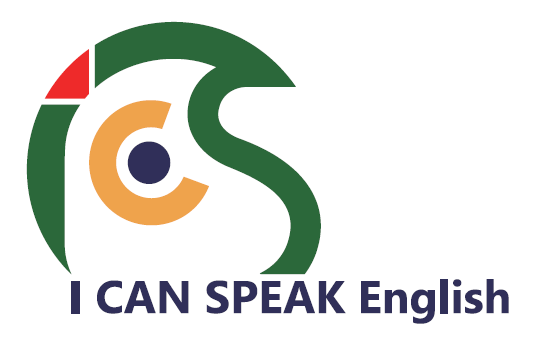ENGLISH COMMUNICATION FOR WORK
Office staff, new graduates go to interviews, managers, directors, business owners who want to improve their English to communicate in an international environment
After the course
- Apply for a job, work at companies with international factors and working environment
- Changing jobs and jumping jobs with the desire to have a higher income
- Forget the feeling of discomfort and frustration when looking at colleagues around you thanks to fluent English communication to advance and be confident at work
- Improve the efficiency of working with bosses, foreign colleagues, foreign customers
- Seize opportunities, business opportunities, and promotions, but because you don’t communicate in English, you still hesitate and then let it slip away.
COURSE DETAILS
ENGLISH COMMUNICATION FOR WORK
Want to find more opportunities at work by improving your English? Do you have a lot of free time and want to find an English class to be able to communicate while traveling abroad? You want to make friends with people from different countries and want to learn English so that you can connect with the world more easily?… There are many reasons for working people to look for an English course or a certain English. Are you among them? Learning English for working people is a little different than for children, so what are the methods and approaches for you to make learning English easier and less stressful?
The 1-on-1 online English communication model for working people at ICS English (ICSENGVN) is designed based on the goal of helping students quickly improve 4 skills of English Listening, Speaking, Reading, and Writing. At the same time, it helps students increase their ability to quickly react to all daily communication situations, especially proficient application in the working environment.
Reasons why it is difficult for working people to learn English
There are many reasons why it is more difficult for working people to learn English than for children.
First, working people have too much knowledge in their heads and tend to use logic to explain things. Therefore, when learning English or any language other than their mother tongue, they tend to use their logic and existing knowledge to explain the grammatical rules of that language. This is not necessarily a bad thing, but if you overdo it, the commuter will focus too much on memorizing and explaining grammatical structures instead of simply listening and speaking and developing daily communication skills like children.
Second, working people have a psychology of being afraid of making mistakes, afraid of being ridiculed. They would rather not say it than say it wrong, they will be judged or ridiculed by others. In fact, it’s perfectly natural to make mistakes when using a language other than your native language, and no one will laugh at you. The people who laugh at you are a little ignorant and you have nothing to worry about them. Remember, everything has a beginning, making mistakes and correcting mistakes is inevitable to complete the process of learning English for working people.
Third, working people often consider English as a subject rather than a skill. Therefore, the method of approaching a new language for them is like math, physics and chemistry, learning theoretical formulas and then applying and solving exercises. However, learning English in general and English in particular is a process of skill development – you need to practice, make mistakes, correct mistakes and develop, not learn and solve problems – these two issues are completely different.
Methods and approaches to learning English for working people
– Find yourself a reason and motivation to learn English
Instead of approaching English learning on the fly, working people should find themselves a suitable reason and motivation to learn English. Ask yourself seriously “why do I need to learn that English?” – the answers can be different such as “I want a promotion, a salary increase”, “I want to look for opportunities to settle abroad”, “I want to travel abroad on my own without an interpreter”, “I want to find a job at a foreign company”, “I want to date a foreigner”,… Once you have found your reason, you will have more motivation and effort than learning English.
– Make an English learning plan based on specific goals
You learn English to travel, study abroad, settle down, to communicate with ordinary people or to serve certain specific work needs. Determine your specific purpose when learning English, it will be easier for you to choose a more suitable program or syllabus for yourself.
If you simply want to improve your communication skills when traveling abroad in the coming month, then preparing for the IELTS test at this time is completely inappropriate. If you intend to work and live abroad, then maybe a reflective communication English course will help you in the long run. What if you want to learn English to serve office communication situations such as writing emails, meetings, and negotiations,… You will probably be convinced by a business English course. This is to emphasize that, when you have a specific purpose, it will be easier and more appropriate to choose the syllabus, materials and learning methods, helping you save time and learn English more effectively.
– Using technology, culture and multimedia to serve learning
Learning English for working people has an advantage over children in that you are used to using technology or media, as well as enough to learn about the culture of different parts of the country. Therefore, you can completely take advantage of the means and technology to serve your English learning. What’s more exciting than watching movies on Netflix with subtitles while learning English. Sitcoms, vlogs or funny movies will be an interesting means for you to learn English in a non-boring and effective way.
At the end of the Beginner course, students can completely:
– Communicate with foreigners in familiar situations – Read and understand short paragraphs – Write simple sentences – Ask frequently asked questions around situations such as asking for age, time, place, price, opinion, evaluation of a thing or thing, etc …– Give accurate answers to simple situations – Master the necessary grammar content
By the end of the Elementary course, students will be able to:
– Master the necessary grammatical content – Present your views clearly on topics that are close to life – Communicate with foreigners in familiar and close situations – Write short paragraphs such as describing a friend, writing postcards, writing instructions, etc write simple reports,… – Confidently master situations when at airports, hotels, cafes, clothing shops…
At the end of the Pre-Intermediate course, students can completely:
– Enhance the ability to communicate with foreigners in any specific situation – Master most important grammar content – Express a personal opinion on a specific issue – Listen to 50% of international news reports – Maintain a random conversation for a certain period of time – Confidently master situations at the airport, restaurants, pharmacies, adventures,… – Distinguish between informal and formal letters – Write emails to friends; Write about yourself and your family
At the end of the Intermediate course, students can completely:
– Strengthen vocabulary – Sustain conversations with foreigners for longer periods of time – Listen to 70% of the content of international news reports – Understand 80% – 95% of common conversations – Logically narrate an event, a side story – Debate and give insightful opinions on a specific issue or news release – Write job applications and participation in interviews with many foreign employers
At the end of the Upper-Intermediate course, students are able to:
– Write a short story, a report or an article – Listen to 85% – 90% of international news reports – Understand 85% – 100% of common communication conversations – Use idioms or metaphors in communication situations – Effectively handle bank transactions, hotel or airport,… – Flexible and skillful in communication
At the end of the Advanced course, students will be able to:
– Writing job applications and reports; Write emails to communicate effectively – Pronounce correctly – Understand 90% – 100% of international news reports – Understand 100% of conversations in communication – Make use of good phrases and idioms in communication – Possess a rich vocabulary in many fields – Speak coherently and flexibly in communication – Maintain a long time to communicate about a specific issue abstract or abstract
ICS English has introduced many famous textbooks of Oxford, Cambridge or Longman Publishing House such as New English File, Interchange, Side by Side… Among them is the New English File textbook of Oxford University Press, which includes 6 levels from basic to advanced. Depending on the entry level and the needs and goals of each student when registering for the course, the teacher will optimize the syllabus according to the appropriate skills.
At the same time, the policy of applying FREE TRIAL LEARNING helps students to be assessed for initial ability, get acquainted with teachers and design a suitable learning path before entering the official course.
Video
Additional Information
The Practical Communication English course at ICS English offers:
✅ Instruction from 100% high-quality Filipino teachers , ensuring a high standard of English with an American accent. English is the primary language spoken in the Philippines, with more than 92% of the population being proficient in it.
✅ Flexible scheduling options that accommodate students’ work and personal commitments. Classes are available during evenings and weekends, allowing for active participation in the program.
✅ A customized curriculum guided by international standards, providing a comprehensive roadmap for learning. Students will not only enhance their English language skills but also broaden their knowledge base. Emphasis will be placed on standardizing pronunciation development as a foundation for effective and fluent communication.











